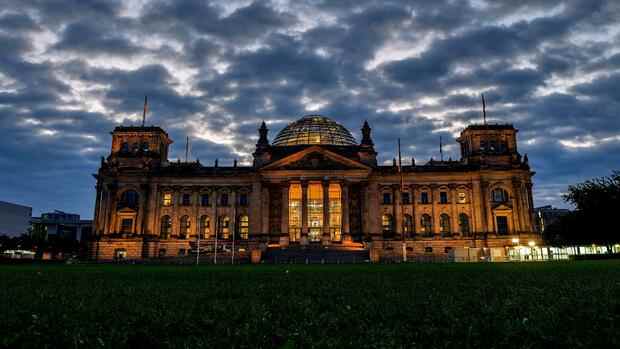This campaign was a campaign of trivialities. And, with all the debates about résumés and questions of style, it was also an imposition – in view of the ecological and economic problems that this country has.
It is true that the top political personnel had “New beginnings” and “Decade of modernization” printed on posters. But the election results show that there is no party that the majority of voters really believe will make this a new start. Even the winner, the SPD, only got a little more than a quarter of the votes.
Many people sense that Germany is facing several historical turning points. The answer to climate change will require the biggest transformation of the economy since industrialization.
At the same time, many companies find themselves caught between the front lines of the conflict between the high-tech superpowers USA and China. And finally, the aging surge will soon have an impact on social security – and with it on the growth potential of the German economy.
Top jobs of the day
Find the best jobs now and
be notified by email.
The next federal government must no longer limit itself to just observing this change, as the outgoing Chancellor Angela Merkel did.
The country is currently experiencing a turning point in the political system, as a federal government will probably consist of a three-party coalition for the first time since the Adenauer era. With the FDP and the Greens, voters have strengthened specialists for the modernization of the economy on the one hand, and for the green restructuring of industry on the other.
One of the remarkable news of the election evening is that the Greens and the FDP want to talk about cooperation. It is quite possible that the two smaller partners will succeed in what neither Olaf Scholz nor Armin Laschet achieved in the election campaign: to formulate an overarching project for the next federal government, a common narrative of modernization.
Companies are a long way ahead of politics here: industrial groups are investing in wind farms off the coast to secure a CO2-free source of energy. Steel cookers are planning to convert their blast furnaces to run on hydrogen. Even car manufacturers who looked down on the electric pioneer Tesla for a long time cannot switch to e-mobility fast enough.
But companies and their employees now need concrete political answers to existential questions: How can the construction of power lines and wind farms be accelerated? How are European companies supposed to remain competitive on the world market if their products are manufactured in a climate-neutral manner in the future – and are therefore significantly more expensive than those of their competitors from China and India?
The new federal government must find answers to these questions and embed them in a suitable industrial policy strategy.
Read more about the federal election:
It’s about more than just the green conversion. Due to high corporate taxes and the annually growing number of often nonsensical rules and bureaucratic hurdles, Germany is falling behind as a business location. With the expansion of the digital infrastructure, the country of the world market leaders has good prospects for the world championship in the snail race. These weaknesses were only masked by the extraordinary export success of the companies in the past decade.
Whoever governs in the future will not be able to avoid imposing demands on their own electorate. The Greens will have to make it clear to conservationists that they cannot slow down every new wind turbine for years with reference to some endangered toad species.
The FDP will have to explain to its clientele how it intends to reconcile the promised tax cuts with the necessary public investments. And the no-longer-so-quite popular parties SPD and Union should explain that CO2 pricing inevitably leads to refueling becoming more expensive – as is the neck steak and the Mallorca flight.
These admissions can only be conveyed if they are accompanied by a credible promise for a better, more sustainable economic future. As well as a sustainable redefinition of what social security and a good life should mean in the future.
In times of accelerated change and the associated dystopias, a sentence by the philosopher Karl Popper applies: “It is our duty to be optimist.” In this sense: Germany now needs a coalition of unreasonable optimism.
More: Follow the latest political developments around the federal election in our news blog.
